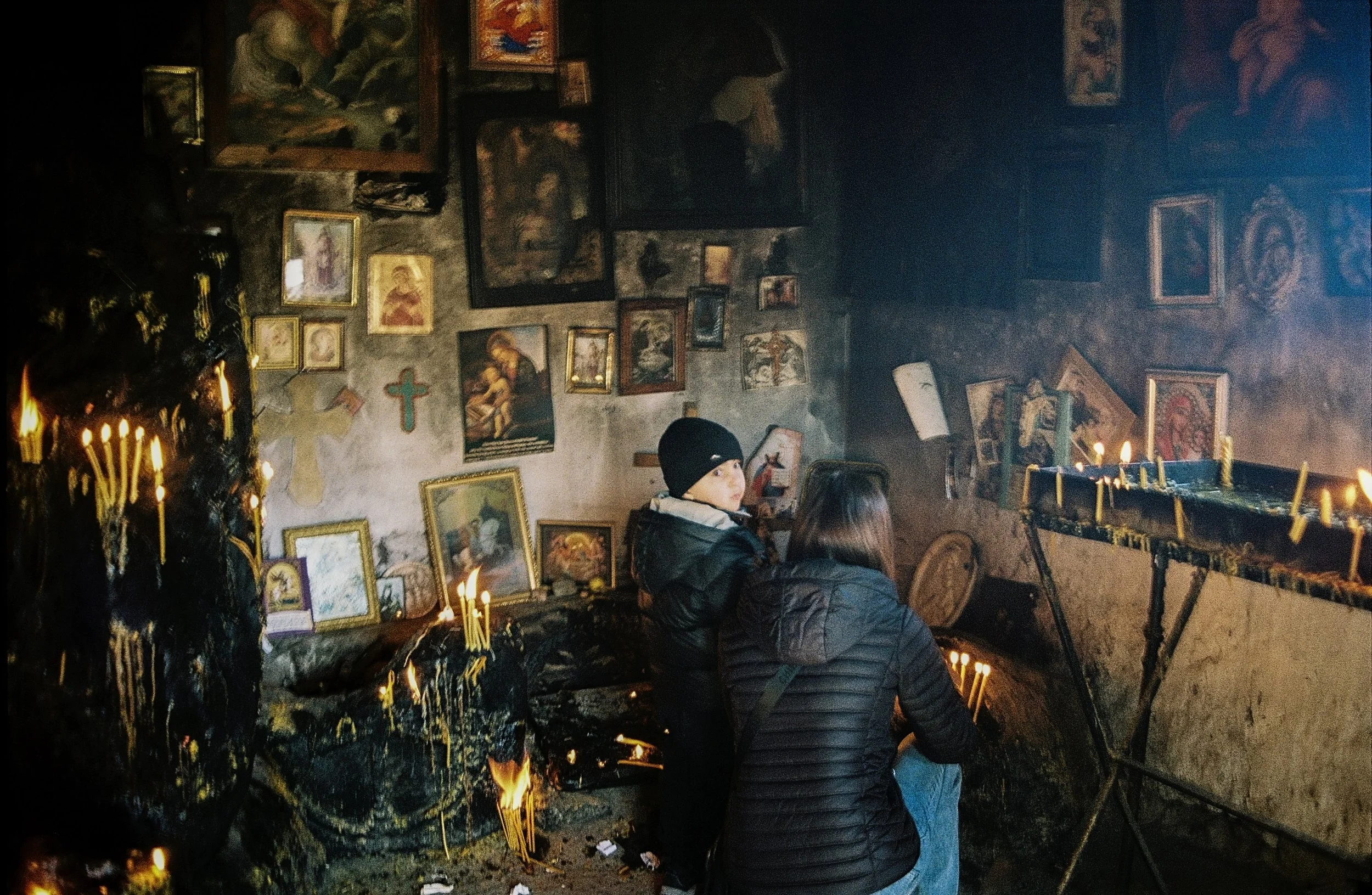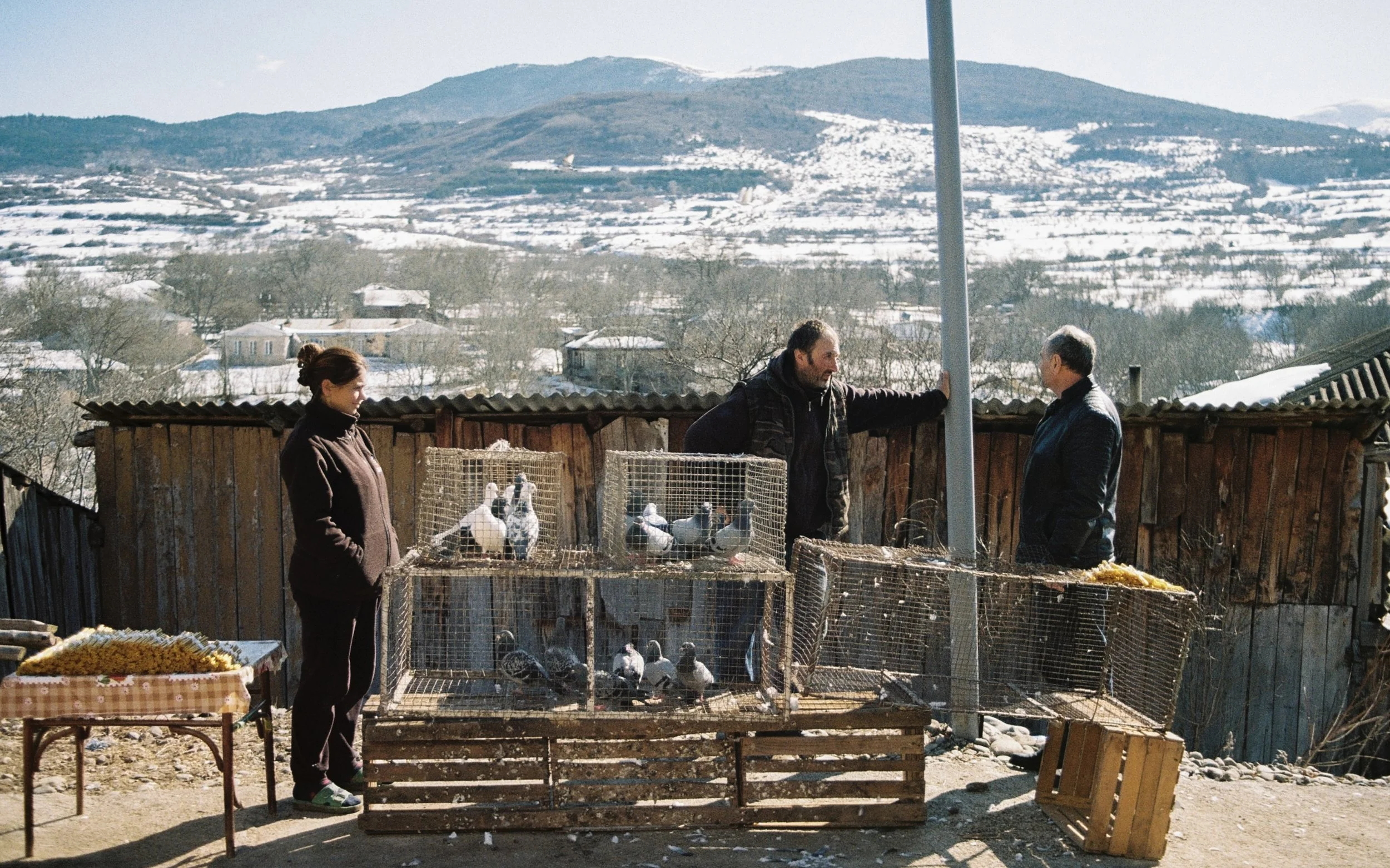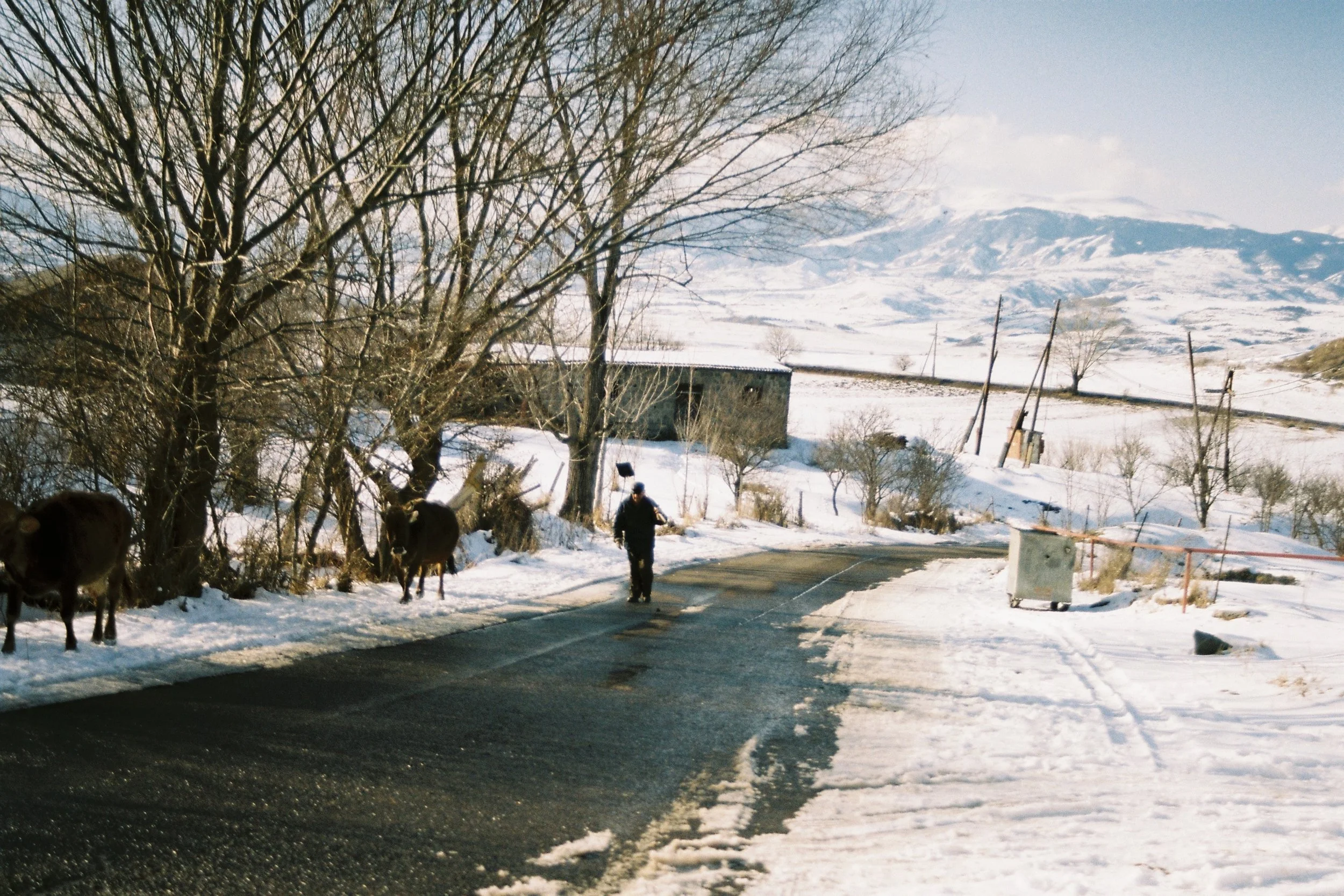Life in Georgia’s Deprived Borderlands: Armenian Enclaves
Inside the cramped stone church in Sadzeli, an Armenian village near the border with Turkey, the air is thick with smoke from dozens of praying candles. Weathered icons line the walls, as a boulder—said to have been carried from Turkey’s Erzurum region—crowds the entryway. Here, amid murmured prayers and the lingering burn of incense, Armenians gather to honor Surb Sarkis, a 4th century martyr. Typically celebrated on the Saturday before the start of Lent, Surb Sarkis, also known as Armenian Valentines Day, often aligns on the coldest night of the year and a snowstorm. This year was no exception. In a country where competing national desires impede a shared vision for the future, the Armenian community anchors its identity in holidays and tradition.
As Georgia’s second largest ethnic minority, Armenians have long been edged into the historical fabric of the Samtskhe-Javakheti region. Despite their established presence, many residents continue to navigate unresolved challenges in an independent Georgia. Language barriers, institutional discrimination and political rifts, exacerbated by the country’s shift from EU aspirations, have created a stagnated integration process. Armenians, still pulled towards Russia for economic opportunities and family ties, grapple with investing in their ancestral villages or seeking mobility elsewhere.






Georgian Dream, the country’s ruling party, has taken considerable strides in consolidating compliance in the country. Giorgi Tumasyan, chairman of the Armenian Community Platform, believes that President Trump’s USAID closure has worsened and deepened insularity within communities.
As one of the highest ranking ethnic minority leaders, Mr. Tumasyan was the 2017 Youth Delegate to the United Nations. His advocacy group aims to safeguard Armenian integration. In the years following the Rose Revolution, President Mikheil Saakashvili’s 2005 university reforms helped elevate minorities and limit corruption in institutions. The introduction of a Unified National Entrance exam (UNE) eliminated name-based university admissions and replaced them with merit-based, anonymous grading. Additionally, since 2010 the 1+4 Georgian Language Preparatory Educational Program has offered minority students who do not speak Georgian a year of intensive language study, after which they can enter a four-year degree program at a Georgian university. These efforts, explains Mr. Tumasyan, creates incentives for minorities to stay in Georgia and not seek higher education in Baku or Yerevan, allowing the country’s younger generation to invest their skills in their local communities.
“For me the most important part is to feel the language and that requires me to be there, to learn the idioms, the jokes, like a native speaker.”
Varsenik Vartanyan, 23, is giddy about her Masters degree in Teaching Turkish as a Foreign Language. As an Armenian in Georgia, speaking all of 5 languages, Ms. Vartanyan plans to study in Bursa, outside of Istanbul. Though she admits that her fondness for learning Turkish is unusual in the context of the generational strife between both nations, Turkey has not acknowledged the existence of the Armenian genocide, she remains excited about her role as an impromptu cultural mediator.
Ms. Vartanyan is committed to returning to her home region as an educator, hoping to teach both English and Turkish. Though most of her family lives in Russia, Ms.Vartanyan asserts that her homeland is Georgia while her historical roots are in Yerevan. Ms. Vartanyan believes that the diaspora of her family across the region is what allows her to remain open minded to languages and opportunities that exist in different places and countries.
Alisa Gimishyan, 37, met her husband Giorgi Beridze, also 37, when he was looking for a local English teacher. A graduate from the English faculty, Ms. Gimishyan spent nearly a decade working for World Vision, a humanitarian NGO. The two began dating privately, and the pandemic provided a cloak of secrecy, they are from two different nationalities after all. Ms. Gimishyan explains that today the community in Akhaltsikhe is more accepting of mixed couples than a decade ago.
“I realized that it is more important to meet a good person and not just a nation.”
Akhlatsike, a mixed city of Georgians and Armenians, offered Ms. Gimishyan exposure to diversity. Though neither herself or her husband claim they suffered from societal pressures to marry within the same ethnic group, Ms. Gimishyan was taught to be devoted to her home nation, Armenia. Today, one of their central challenges in maintaining a dual identity for their toddler twins, is teaching them Armenian.




Georgia’s Javakheti region differs significantly in its isolation and remoteness. Located roughly 30 kilometers from the Armenian border, around half of Akhalkalaki’s economy is dependent on work in Russia, contributing to a steep labor migration. Ranked as one of Georgia’s poorest regions, Javakheti’s ethnic insularity demotivates a complete Georgian integration. As language levels remain low, ethnic minorities are easily manipulated, explains Arnold Stepanian, chairman of the Public Movement Multinational Georgia, an umbrella NGO representing minority groups. Amid an informational vacuum and a fractured political opposition, Mr. Stepanian says many residents live in a reality shaped by Russia and Armenia, disconnected from events in their capital, Tbilisi.
The lack of touristic development, informed by discriminatory policies, also contributes to the regional destitution of Javakheti. Despite impoverished conditions and poor infrastructure, voter turnout in Akhalkalaki remains significant, with nearly 90% of voters supporting the Georgian Dream party. Though reports of fraud and corruption help explain the administration’s victory in the election, Armenians feel connected to Georgia not through politics, but in their respective villages. For true integration to exist, both the minority and the government must desire it, says journalist and documentarist Kristina Marabyan.
“We are Georgian citizens, but only in our regions.” Ms. Marabyan explains. “In the region, one understands that we are part of this country. Once you leave the regions, that is where you start to feel lost.”



